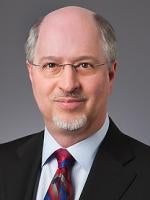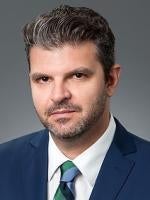San Francisco (Monday, January 8, 2018): Outside it was raining heavily today in San Francisco, but inside the 2018 JP Morgan Healthcare Conference the weather was distinctly sunny. Nary a hint of gloom or pessimism was heard today from the hospitals and health plans presenting at the conference, even after the joys of last year’s “repeal and replace,” tax “relief” and the multiple redirections from CMS. Instead, we saw optimism, continuing implementation of prior strategic plans and, generally, continuing consensus of the need for greater scale; more analytics, digital engagement, big data and artificial intelligence; more population health management; and value-based/risk-based arrangements. Here’s some highlights from today’s proceedings:
Most Scientifically “Cool” Presentation – The award goes to Cincinnati Children’s Hospital for the best “wow factor” we saw in today’s presentations. They are growing “organoids” – tiny stomachs and other organs grown from a patient’s own pluripotent stem cells. These are first cultured in a petri dish, then transferred to animal tissue, where they fully vascularize and grow. The organoids have all of the tissue types and functionality of a human organ, but they initially are much smaller. The tiny organs can be used for research and drug development and, since they are grown from a person’s own cells, initial indications are that immune rejection is reduced, the need for life long immunosuppressant drugs may be eliminated and donors are not needed. The researchers at the hospital (and elsewhere) are working on lungs, esophagus, stomach, liver, intestine, pancreas and kidney, with the heart and brain also in the development plan. And, the intended commercialization and research path would suggest that the organoids could be subjected to genome editing and transplantation therapy to address genetic faults. When does this all happen – it’s being worked on now and the forecast is to have this ready in five years for broader use. Sign me up – I’ve always wanted a second stomach available for those endless Sunday brunch buffets.
Fun Facts About Florida – Kudos to CEO Rene Lerer of Guidewell for sharing some interesting facts about Florida with the audience. Florida just became the third most populous state in the country, after New York and California. Florida also has the second largest senior population in the U.S., which is causing quite a scramble for market share in the South Florida Medicare Advantage market, and the highest national ratio of seniors to the rest of the population. Also, 70% of Florida’s population lives in Miami, Orlando and Tampa, and about 60% of all hospital admissions in Orlando and Tampa go to two hospitals in each city. Florida continues to consolidate its provider market. And, Florida Blue is very happy with the ACA insurance marketplace! They have been profitable on the exchange since day 1, and will have 1.1 million ACA members, which they say makes them the largest ACA plan in the country. Lerer framed that as 6% of the total Florida population and 15% of the Florida ACA population. Keep in mind too that Florida never expanded Medicaid. Finally, Florida Blue has been rapidly opening physician clinics for its ACA business within the past few years. They estimate that they will have eleven clinics servicing 130,000 members by the end of this year. Look for Florida Blue to accelerate payor/provider alignment strategies this year, especially with nonprofit health systems. And, since population health management needs to be mentioned at least once every couple of paragraphs, let us note that Guidewell purchased PopHealthCare in Nashville last year. Lerer pithily noted that patients with chronic disease conditions are not looking for managed care, they’re looking for a better-managed life.
Medicaid – 2018 promises to be a big year in Medicaid. Centene noted that 69 contracts for $139 billion of revenue would be up for grabs this year. North Carolina also has chosen to move fully toward managed Medicaid. Florida also is going through its intent to negotiate process. Multiple plans noted the need for population health management in the Medicaid space. As noted in their presentation, Centene will complete their Fidelis purchase in 2018, the $3.75 billion purchase of New York’s largest managed Medicaid plan (a shout out to Jay Gerzog of Sheppard Mullin’s New York office for his deal leadership for Fidelis’ corporate members). In Massachusetts, where the Medicaid population is higher than many other states as a percentage of total population, the state is moving into Medicaid ACO arrangements and attributing lives to primary care physicians. 17 Massachusetts Medicaid ACOs will be sharing risk and upside in the next year, with Partners HealthCare focusing efforts on a new Medicaid ACO.
Catholic Health Initiatives and Dignity Health – Both CHI and Dignity talked about their combined and separate businesses today, with the pending combination of the systems a matter of strong interest. As to timing, it will take perhaps a year to consummate, and one to three years to achieve integration and full beneficial results, not to mention a new brand for the combined system. Both systems see opportunities to increase their investment in digital strategies and patient access. Other news of interest – the California provider fee was approved by CMS for the 2017 – 2019 period (where California hospitals are “taxed” additionally to increase the state contribution to the Medicaid program, resulting in more federal dollars being made available to the state and the hospitals). Dignity reported already receiving approximately $400 million in payment for such period. As a non-Dignity note, an earlier round of the provider fee payments resulted in significant cash influx for the California hospitals and helped to fund physician group acquisitions, information technology investment and other projects.
Artificial Intelligence Being Put to Work – Partners Healthcare in Massachusetts reported continued growth, and, interestingly, also shared that they had entered into a new ten year agreement for GE to embed artificial intelligence and machine learning into the “patient’s journey” at Partners, including both clinical experiences and “smart” devices and equipment to better collect and process data. Pairing that approach with a “data commons” warehouse allows for innovative analytics and process improvement. Another indication for artificial intelligence was in the area of drug discovery and development. The company Benevolent AI is looking to improve with machine learning both the choice of disease states, drug discovery approaches and clinical trial analysis and structuring. And, while not artificial, Kevan Mabbut, who led Disney’s digitization of their theme parks, will be applying his intelligence to Intermountain’s IT efforts to improve access and consumer-centric focus.
A Conifer Falls in the Forest… – Tenet’s presentation today clearly indicated that its Conifer subsidiary is up for sale and that Tenet is looking to maximize value for its shareholders from that asset. Conifer has been discussed in the press recently for its revenue cycle management functions, but it also has a California operation that manages risk-based health plan lives for physician groups and networks. That latter function is relatively rare currently in the stand-alone management services organization (MSO) market in the U.S. and may be of interest to health systems, strategic investors and private equity funds seeking an experienced risk-bearing MSO function. But, Tenet also indicated today that its contract with Conifer is set to expire in the near future, so it will need to be renegotiated during and as part of the sale process.




 i
i


